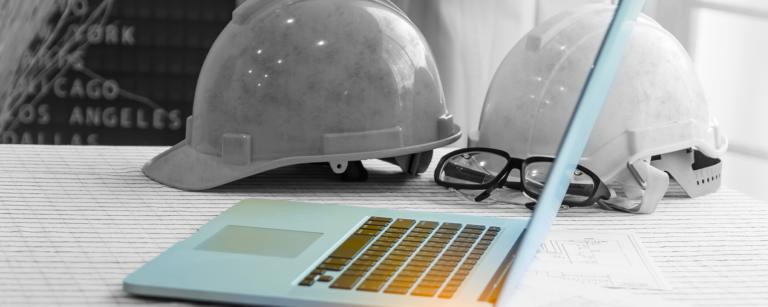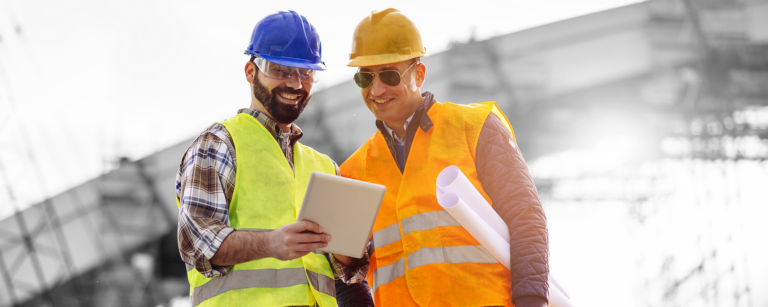Leveraging the Power of AI in Construction Scheduling Software
October 19, 2021
Artificial intelligence (AI) has been around for a while in the construction industry. Once a somewhat misunderstood concept, there’s now growing acceptance and appreciation for its capabilities. Rather than replacing human intelligence, AI is intended to work in tandem with it. This human intelligence — the expertise and experience of your project team members — is truly what feeds AI’s ability to think and learn.
In turn, AI helps those team members better understand current and past projects to enable better decisions, which leads to better project outcomes. Recognizing this, project owners and contractors alike in the U.S. have their sights set on the potential of AI in the very near future.
One construction area where AI is making a particularly powerful impact is in scheduling and planning. For example, augmenting human capabilities to create more predictive and realistic project timelines makes it a natural partner for construction scheduling software. If you’re familiar with the concept of AI, yet curious as to how it applies to this software, now is a good time to start exploring the potential benefits.
Construction scheduling software empowers you to use historical knowledge
Think of all the rich data each project accumulates. Then multiply that by all the builds you’ve done. How do you mine that vast amount of information to make it work for you? If substantial capital builds make up all or the bulk of your portfolio, it might seem overwhelming to comprehend. But for AI, the more data it has to work with, the better it can inform creation of more accurate project plans.
So, let’s say you’re creating a plan for a type of structure you’ve built before. Rather than you having to start from scratch with essentially a blank screen, AI recognizes the similar project in your history and suggests the past real-life schedule as a starting point, saving you an immense amount of development time, effort and money (not to mention, potential manual entry errors).
Drawing from a knowledge base of historical data, AI-enabled construction scheduling software makes the complex scheduling process much more efficient. It can suggest task duration, sequencing, risks, costs and more as it detects plan components that resemble those of past projects. As you (or the main project scheduler) accept or reject these suggestions, it further improves AI’s ability to learn, resulting in a more accurate, realistic schedule that is more likely to earn buy-in from the broader project team.
Identifies and mitigates risks
Of course, no construction project is without risk. And your capital projects in particular — with their longer durations, higher complexity, often larger size and more resources — are at the mercy of the anticipated and the unexpected. What risks are you likely to encounter that you have to plan for? What would the possible impact be? And what can be done to mitigate them or avoid them altogether?
AI-powered construction scheduling software helps answer these questions, giving you enough predictability to allow you to risk-adjust plans confidently. Keep in mind AI isn’t a decision maker, telling you definitively how to mitigate each and every risk factor. Rather, it’s more of an advisor meant to inform your own decisions.
So based on prior data you’ve entered for similar projects or components, AI can give you a data-driven idea of what you might experience and suggest how to best address them. This allows you and your project team to collaboratively decide whether to decline or approve the suggestions (which further “trains” the AI from a risk perspective) as you develop a more finely tuned, risk-adjusted schedule that meets the evolving unique circumstances of your project.
Of course, risk isn’t just about internal or external “events.” That AI functionality within construction scheduling software can just as easily spot unrealistic task durations, an overly ambitious timeline, overlapping schedules for the same resource, or out-of-sequence task dependencies. As AI learns to identify these scheduling hiccups, it’s better able to provide alternatives to correct the schedule so it’s more realistic.
Leverages human knowledge for improved project certainty with the right construction scheduling software
As AI extracts and processes the project data to deliver insights, and initial schedule baseline and risk-adjusted timelines, and ongoing risk identification, the project team is freed up to do the things only humans can do with all that carefully mined information — analyze flagged risks, make improvements and adjustments to plans, and collaborate on critical decisions.
But there’s one aspect of human intelligence that typically isn’t captured. Think of the deep well of experience and expertise your team members bring to your projects — their lessons learned, observations, insights and experience-informed decisions. That’s just as vital to successful scheduling and planning as the wealth of project data you’ve accumulated.
How do you collect and apply that knowledge going forward, long after they’ve left the jobsite or retired? By inputting this broader human intelligence into AI-powered construction scheduling software, like InEight Schedule, you can capture their expertise and feedback throughout your project. What this does is help inform future project plans, rooting them in a foundation of realism and certainty that couldn’t be achieved otherwise.
Relying on the actionable data in its knowledge library, you can use AI as an interactive tool to capture and apply historical data and create risk-adjusted schedules throughout your build as data and conditions evolve, which will all lead to improved project certainty. This is what InEight’s Schedule, can help you do. Arrange for a demo to find out how you can use Schedule to increase project predictability.




